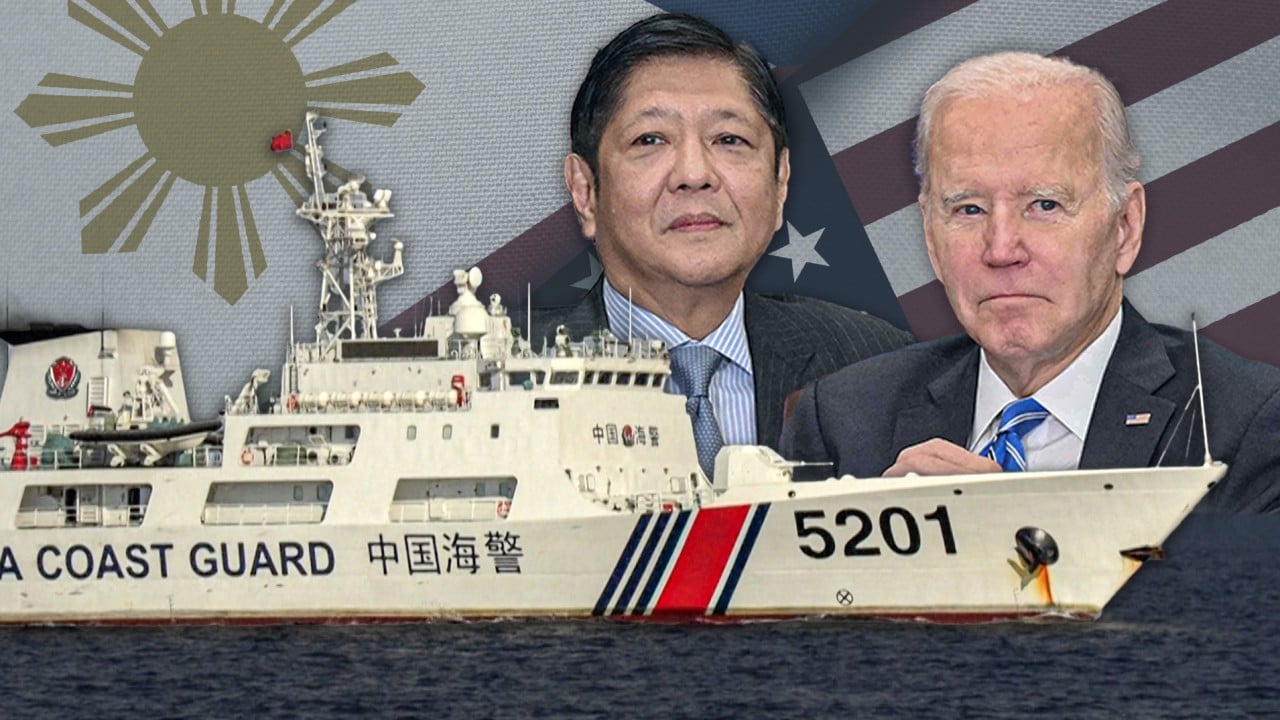
China denies recruiting ‘sleeper cell’ military members in the Philippines
- Beijing’s reaction followed a directive by the Philippines to probe the reported online recruitment of Filipino military personnel as ‘part-time consultants’
- Allegations intensified after a senator questioned the Philippine Retirement Authority on issuing special resident retiree visas to Chinese nationals of ‘soldier’s age’
The Chinese Embassy in Manila on Wednesday strongly denied Philippine military reports that Beijing has been recruiting Filipino military personnel as consultants and planting operatives in “sleeper cells” throughout the country.
Beijing’s reaction followed a directive by the Department of National Defence to probe the reported online recruitment of Filipino military personnel as “part-time consultants”.

The website used for the recruitment effort was traced to China, according to local Philippine media Inquirer.
“We are still checking this,” Brawner told reporters.
The “sleeper cell” allegations also intensified after a Philippine senator on Sunday questioned the Philippine Retirement Authority on its issuance of special resident retiree visas to Chinese nationals of “soldier’s age”.
Some 78,000 foreign retirees hold special resident visas in the Philippines, with Chinese nationals accounting for 30,000 of these, government data showed.
Asia’s terrorism surge: Isis-K awakens sleeper cells in deadly strategy shift
But the Philippine military’s findings constituted a serious allegation that needs to be examined further, said political analyst Sherwin Ona, an associate professor at De La Salle University in the Philippines.
“It can definitely affect the confidentiality of operations, thus posing a significant threat to national security,” Ona told This Week in Asia.
“It can also undermine the credibility of the Armed Forces of the Philippines with its allies, considering that the Philippines is now part of regional alliances aimed at countering Beijing’s expansion,” he added.
Ona also urged a probe into whether the alleged recruitment had taken place during Duterte’s time in office.
‘Alarming’: Philippines steps up probe into alleged Chinese sleeper cells
On Wednesday, military spokeswoman Colonel Francel Margareth Padilla said the site allegedly used by China to recruit people with military backgrounds had been “taken down” and was “now gone”.
Padilla said the military and other government agencies are tracking those behind the account and whether anyone had leaked any sensitive information.
Ray Powell, a retired US Air Force officer and now a maritime security analyst, said it would be deeply troubling but not surprising to learn that China had spies operating in the Philippines.
“Spying is hardly new, and China is known to conduct espionage all over the world, including in the United States,” Powell told This Week in Asia on Thursday.
Rommel Banlaoi, director of the Philippine Institute for Peace, Violence and Terrorism Research, said what the military revealed was only based on suspicion, and urged investigation to “generate actionable intelligence information”.
On Sunday, the Philippines, US, Australia and Japan conducted a joint naval and air exercise in the West Philippines. US National Security Adviser Jake Sullivan said on Wednesday that more such naval drills can be expected in the South China Sea.
Later this month, the US and the Philippines will conduct its annual Balikatan joint military exercises involving some 11,000 American troops and 5,000 Filipino soldiers in the South China Sea.
But such activity only heightens tension and increases the risk of armed conflict, Banlaoi said.
“There are many non-military ways of managing disputes in the South China Sea. We have to consider all these non-military means because military options will do no good to the Philippines and to the region,” he added.

